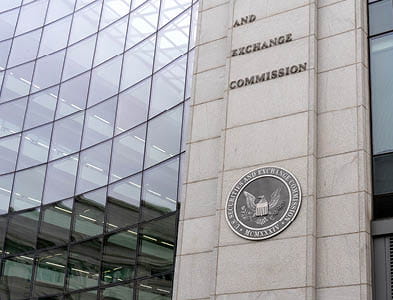A Look at SEC’s Proposed Rules on Adviser-Led Secondary Transactions
A Look at SEC’s Proposed Rules on Adviser-Led Secondary Transactions
On February 9, 2022, the United States Securities and Exchange Commission (SEC) proposed new rules under the Investment Advisers Act of 1940. The SEC did so with the goal of providing greater transparency to investors regarding private funds, the cost of investing in said funds, and their performance. Two topics of special interest to the valuation community emerged: 1) A proposed requirement for the investment adviser to obtain a fairness opinion in connection with certain adviser-led secondary transactions and 2) an alternative requirement for advisers to obtain a third-party valuation in connection with adviser-led secondary transactions, instead of a fairness opinion.
Requirement for Fairness Opinion
The SEC proposed rule states, “We propose to require an adviser to obtain a fairness opinion in connection with certain adviser-led secondary transactions where an adviser offers fund investors the option to sell their interests in the private fund, or to exchange them for new interests in another vehicle advised by the adviser.”1
This proposed rule is meant to provide a check against conflicts of interests that could arise in these adviser-led secondary transactions. Because of the structure of said transactions, where investors may be exchanging interests in a private fund for new interests in another vehicle advised by the same adviser, a fairness opinion can help protect investors by providing an additional layer of review and reducing the likelihood that the business will be transacted at a price that differs significantly from its fair market value.
Engaging an independent financial adviser to perform a fairness opinion in this scenario is already a best practice for many investment advisers, and the SEC is proposing to formalize such a practice as a requirement. As there is no such obligation at present however, an adviser-led secondary transaction may be completed without securing a fairness opinion. The proposed rule would be a significant development in this regard, as there are currently very few scenarios (at a federal or state level) that trigger a requirement to obtain a fairness opinion.
The SEC is currently looking for comments on the proposed regulations, with comments due on April 25, 2022. Some of the questions they are seeking feedback from the investment community on include the following:
- Should certain adviser-led transactions be exempt from the proposed rule? For example, if the adviser conducts a competitive sale process for the business or assets being sold, which ultimately leads to the price at which the secondary sale is completed, should the adviser still be required to obtain a fairness opinion?
- Are there other types of transactions for which private fund advisers should be required to obtain a fairness opinion? For example, should a fairness opinion be compulsory in connection with a “cross-fund” transaction, whereby a business is sold between two different (existing) private funds that the adviser manages?
- Should the rule give investment advisers the option to obtain either a fairness opinion or a third-party valuation? Why or why not? What are the advantages and disadvantages of a third-party valuation as compared to a fairness opinion, and vice versa?
Valuation Opinions and Fairness Opinions
The SEC proposed rule also states, “The Commission could consider requiring advisers to obtain a third party valuation in connection with certain adviser-led secondary transactions, instead of a fairness opinion. We believe that these third party valuations would likely involve more diligence of the proposed transaction than the reviews conducted in connection with obtaining a fairness opinion, and therefore, requiring these valuations could provide even greater assurances to investors that the terms of the transaction are fair to their interests. However, we believe that obtaining a third-party valuation would likely be significantly more costly to obtain. If these costs could be passed on to participants in these transactions, it could make them less attractive to investors as a means to obtain liquidity.”2
As such, the proposed rule discusses the possibility of requiring advisers to obtain a third-party valuation in connection with adviser-led secondary transactions, instead of obtaining a fairness opinion. However, in the SEC’s discussion of this alternative, the SEC states that they believe that obtaining a third-party valuation would likely involve more diligence and would therefore be more costly than a fairness opinion.
It is not clear how the SEC arrived at the perspective that a valuation would be more costly than a fairness opinion, but it is our view that this statement is misguided. A fairness opinion summarizes an analysis that indicates whether certain financial elements in a transaction, such as price, are fair to a specific constituent from a financial point of view. In practice, a fairness opinion is derived from an underlying valuation analysis and then goes a step further by comparing the valuation to the price being paid in the transaction. A valuation opinion is a hypothetical willing-buyer/willing-seller analysis, whereas a fairness opinion is addressing a specific proposed transaction. As a result, providing a fairness opinion is a more complicated and riskier endeavor for the professional providing the opinion and is therefore a more expensive proposition.
The SEC does mention that if the costs of obtaining a valuation in an adviser-led secondary transaction were passed on to investors, it could negatively affect the liquidity of investments. The SEC is working to propose new rules that are designed to enhance protection for investors. However, there is an effort to avoid creating rules that fundamentally impair the market for those investments by imposing significant costs onto participants.
As proposed rules, these regulatory changes are not final, but they provide insight into the priorities of the SEC in promoting more transparency in private fund investing.
- “Private Fund Advisers; Documentation of Registered Investment Adviser Compliance Reviews,” U.S. Securities and Exchange Commission, proposed rule, File No. S7-03-22, February 9, 2022, pg. 121.
- “Private Fund Advisers; Documentation of Registered Investment Adviser Compliance Reviews,” U.S. Securities and Exchange Commission, proposed rule, File No. S7-03-22, February 9, 2022, pg. 277.





